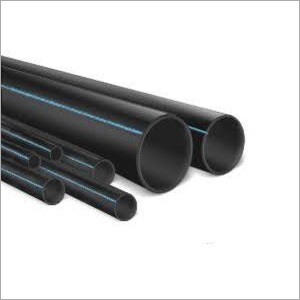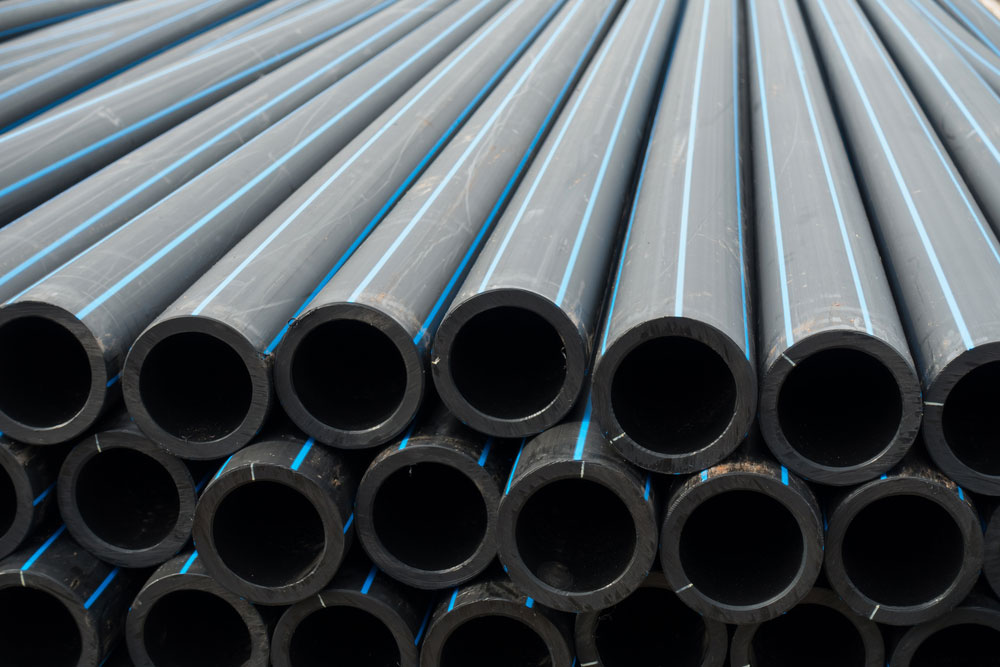A Comprehensive Overview to the Various Uses of HDPE Pipe in Construction and Industry
HDPE pipelines have actually emerged as a pivotal part in contemporary construction and industrial applications. Their special homes, such as resistance to corrosion and lightweight design, make them suitable for a variety of uses. From water systems to farming irrigation, HDPE pipelines provide remedies that boost performance and sustainability. Comprehending their diverse applications is vital for specialists wanting to optimize infrastructure. What particular benefits do these pipes bring to each field?
Water and Distribution Equipments
Water supply and circulation systems are vital parts of urban facilities, often depending on high-density polyethylene (HDPE) pipelines for their durability and performance. These systems transport potable water from therapy centers to consumers, guaranteeing accessibility and safety and security. HDPE pipes are favored for their resistance to deterioration, chemicals, and severe temperature levels, which enhances their long life and decreases maintenance prices. Furthermore, their light-weight nature permits less complicated installation and transportation, making them suitable for numerous metropolitan and country applications.
The versatility of HDPE pipes enables them to be installed in limited spaces and around obstacles, decreasing the need for comprehensive excavation (American Plastics HDPE Pipe for Oilfield). Their smooth interior surface area decreases rubbing losses, boosting water flow prices. As cities remain to grow, the demand for trusted water supply systems enhances, placing HDPE pipelines as a lasting option for modern-day framework jobs. Their tested record makes them a recommended choice amongst engineers and city organizers alike
Wastewater Monitoring and Treatment
Effective wastewater management and therapy are vital for maintaining public wellness and ecological top quality. HDPE pipelines play an important role in this procedure due to their durability, resistance to rust, and capability to withstand severe chemicals. These pipes are commonly utilized in various applications, including sewer system, stormwater water drainage, and wastewater treatment facilities. Their lightweight nature facilitates simpler installation and transport, minimizing labor costs and time.
On top of that, HDPE pipes have a smooth indoor surface that lessens friction loss, advertising efficient circulation rates. They are additionally less vulnerable to leakages and failures compared to conventional materials, guaranteeing that pollutants are had effectively. Their flexibility permits for adaptability in different dirt problems, making them ideal for diverse environmental settings. As sectors progressively prioritize sustainable techniques, using HDPE pipelines in wastewater management systems straightens with goals for lowering ecological influence and boosting resource recuperation.
Agricultural Irrigation Solutions
In agricultural settings, efficient watering options are essential for optimizing plant returns and handling water sources. HDPE (High-Density Polyethylene) pipelines play a crucial role in contemporary watering systems as a result of their sturdiness, adaptability, and resistance to deterioration. Their ability to hold up against high stress makes them ideal for both surface area and subsurface watering applications, making certain consistent water circulation across fields.
Farmers can use HDPE pipes in drip irrigation systems, which supply water straight to plant origins, minimizing wastage and promoting healthy development. In addition, these pipes are lightweight and easy to mount, decreasing labor prices and installment time. Their long lifespan and low upkeep requirements further enhance their charm in farming methods.
HDPE pipelines are eco pleasant, as they can be recycled and do not seep harmful chemicals right into the soil. This makes them a sustainable choice for farmers aiming to embrace environment-friendly agricultural approaches while making best use of efficiency.
Industrial Applications and Procedures
Versatility is a characteristic of HDPE pipes, making them vital in different industrial applications and procedures. These pipelines are extensively utilized in chemical handling markets as a result of their outstanding resistance to a wide variety of destructive materials. HDPE's lightweight nature, integrated with high tensile strength, permits simple setup and long-term efficiency popular environments.
In the oil and gas industry, HDPE pipes play a crucial function in carrying hydrocarbons and gases, many thanks to their sturdiness and versatility - hdpe pipe suppliers Midland TX. In addition, they are used in mining operations for the transport of slurry and other materials, where conventional piping systems might fail
In addition, HDPE pipelines are significantly utilized in manufacturing facilities for supply of water lines and wastewater administration. Their capability to stand up to severe temperatures and stress makes them appropriate for a selection of industrial procedures. Overall, HDPE pipelines contribute substantially to efficiency and safety across varied commercial applications.
Stormwater Monitoring and Water Drainage Solutions
Stormwater management and drainage systems are important parts in city facilities, designed to handle excess rainfall and decrease flooding dangers. High-density polyethylene (HDPE) pipelines are progressively used in these systems due to their toughness, adaptability, and resistance to rust. These pipes efficiently move stormwater away from inhabited areas, reducing surface drainage and stopping waterlogging.
HDPE's lightweight nature helps with simpler setup, decreasing labor prices and building and construction time. Additionally, its resistance to chemicals and ecological stress factors guarantees long life and integrity in different climates. In addition to standard water drainage applications, HDPE pipes are also utilized in ingenious services such as green infrastructure, which includes rainfall yards and absorptive sidewalks.

Regularly Asked Concerns
How Does HDPE Pipeline Compare to PVC Pipe in Price?
Generally, HDPE pipe tends to be a lot more expensive than PVC pipe because of its enhanced durability and flexibility. Nonetheless, long-term expense factors to consider, such as maintenance and lifespan, may favor HDPE in specific applications.

What Is the Life Expectancy of HDPE Pipes Under Varying Problems?
HDPE pipelines generally have more info a lifespan of 50 to 100 years, depending on environmental conditions, installment practices, and use. Aspects such as temperature, soil kind, and direct exposure to chemicals can greatly influence their sturdiness.
Can HDPE Water Lines Be Recycled After Usage?
Yes, HDPE pipelines can be reused after usage. The recycling process entails melting down the material, allowing it to be repurposed into brand-new products, consequently advertising sustainability and lowering ecological impact related to plastic waste.
Exist Any Type Of Particular Setup Challenges With HDPE Pipelines?
Setup obstacles with HDPE pipelines include correct jointing strategies, making sure ample trench conditions, and taking care of thermal development. Furthermore, knowledgeable labor is required to manage specific devices, which can make complex the setup process in various settings.

What Accreditations Should I Seek When Getting HDPE Pipings?
When purchasing HDPE pipes, one should search for qualifications such as ASTM, AASHTO, and ISO, which confirm high quality and compliance with industry standards, guaranteeing sturdiness and performance in various applications. - custom hdpe pipe manufacturing Midland TX